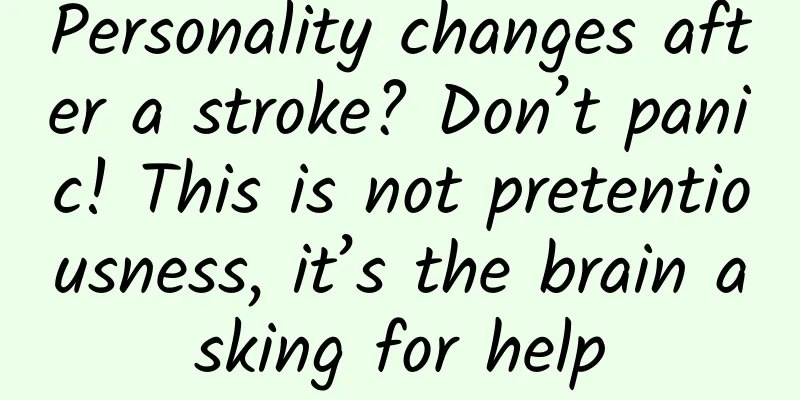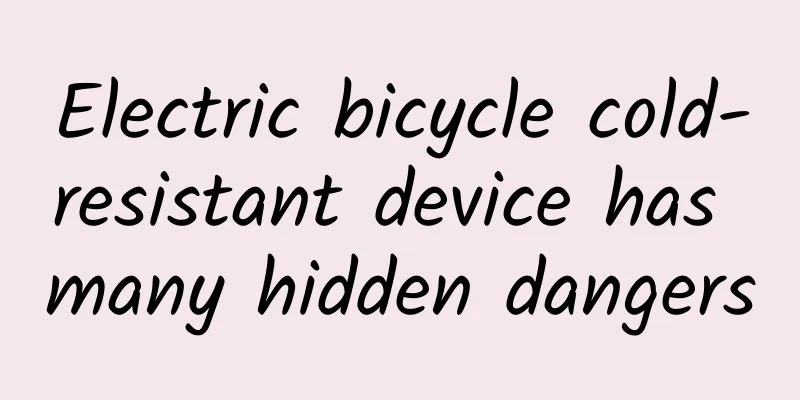Personality changes after a stroke? Don’t panic! This is not pretentiousness, it’s the brain asking for help

|
After Grandpa Zhang was discharged from the hospital after suffering a stroke, he seemed like a different person. The gentle old man suddenly smashed things in the middle of the night, did not sleep all night, and pointed his fingers at his bed, always saying that the food was poisonous. He even could not recognize his wife who had been with him for 50 years. The family had no choice but to take Grandpa Zhang to the Department of Psychiatry (Male) of Physical Diseases of Hunan Second People's Hospital (Provincial Brain Hospital) for treatment. Chief physician Peng Fuzhi received Grandpa Zhang and after a series of examinations and tests, he was diagnosed with organic brain mental disorders and sequelae of cerebral infarction. Fortunately, after treatment, Grandpa Zhang's mood gradually improved and he was able to communicate normally with his family. Today, Tang Li, director of the Department of Psychiatry (Male) of Somatic Diseases and chief physician, wants to talk to you about this easily overlooked health hazard - mental disorder after cerebral infarction. 1. Why do mental disorders occur after cerebral infarction? Cerebral infarction, medically known as cerebral infarction, is a localized ischemic necrosis or softening of brain tissue caused by impaired blood supply to the brain, ischemia, and hypoxia. When a cerebral infarction occurs, the normal function of the brain is destroyed. The brain is the "headquarters" of the human body, and each area has a specific function. Cerebral infarction can damage certain brain areas and affect the signal transmission between nerve cells and the balance of neurotransmitters. For example, when brain areas related to emotion regulation and cognitive function are damaged by cerebral infarction, mental disorders may occur. Infarctions in the frontal lobe and temporal lobe are often closely related to mental and behavioral abnormalities. 2. What are the symptoms of mental disorders after cerebral infarction? 1. Cognitive impairment Many patients will experience memory loss after a stroke, forgetting what they just said or did. Some patients have difficulty concentrating, and tasks that were once familiar become difficult to complete, such as not knowing how to operate a tool that they used to be proficient in, which seriously affects their daily lives. 2. Abnormal emotions It is common for patients to have mood swings. Some patients become depressed, sighing all day, losing interest in anything, and even having suicidal thoughts; others become easily excited and irritable, get angry over trivial matters, and frequently clash with family members and medical staff. Others become anxious, inexplicably nervous and uneasy, and worry about things that have not yet happened. 3. Psychiatric symptoms Some patients experience hallucinations, such as seeing non-existent people or things, and hearing voices that others cannot hear; some patients experience delusions, believing without any basis that they are being persecuted or monitored, or that they have special abilities, etc. These mental symptoms not only cause pain to the patients themselves, but also cause great distress to their families. 3. How to deal with mental disorders after cerebral infarction? 1. Seek medical attention promptly Once a cerebral infarction patient is found to have abnormal mental behavior, he or she must go to the hospital as soon as possible. The doctor will make a clear diagnosis and develop a personalized treatment plan through detailed interviews, neurological examinations, brain imaging examinations (such as CT, MRI), and psychiatric and psychological assessments. 2. Comprehensive treatment Treatment of post-stroke mental disorders usually adopts a combination of drug therapy and psychotherapy. In terms of drug therapy, doctors will choose appropriate drugs according to the patient's specific symptoms, such as antidepressants, antianxiety drugs, antipsychotics, etc., to improve mood and mental symptoms. At the same time, psychotherapy is also very important. Professional psychologists will help patients adjust their mentality, correctly understand the disease, and enhance their confidence in coping with the disease through cognitive behavioral therapy and supportive psychotherapy. 3. Home care The company and support of family members are crucial to the patient's recovery. Family members should give patients enough patience and care, and understand that their emotional changes and abnormal behaviors are not intentional. In daily life, patients should be helped to have a regular schedule, arrange a reasonable diet, and be encouraged to perform appropriate rehabilitation exercises, such as walking and simple physical exercises, to promote physical and psychological recovery. Although post-stroke mental disorder will bring challenges to patients and their families, as long as we raise awareness, detect it in time and actively treat it, we can effectively control the symptoms and improve the quality of life of patients. I hope everyone can share this knowledge with more people around them, so that more people can understand post-stroke mental disorder and protect their health together. Hunan Medical Chat Special Author: Peng Fuzhi, Male Ward, Department of Psychiatry, Department of Physical Diseases, Hunan Second People's Hospital (Provincial Brain Hospital) Follow @湖南医聊 to get more health science information! (Edited by Wx) |
<<: Emergency consultation: Who sealed Shen Gongbao's throat?
>>: Whoosh~Eeh? They seemed to smell the "smell" of the universe...
Recommend
Mobile, Ecosystems, and the Death of the PC
Technological progress is reflected in the large-...
How to create Douyin video accounts in batches, how to edit videos and movies, how to monetize them with products (with software)
The famous Lanshen Media is said to be not a trai...
Quantum communication: an important guarantee for the future autonomous and controllable information security ecosystem
"Quantum" is already a hot research fie...
Taking "Get" as an example, a brief analysis of how knowledge monetization can be combined with social networking
Taking " Get " as an example, the artic...
Tmall Super Brand Day: A marketing revolution that turns joint marketing into IP
Recently, I was impressed by Tmall’s “coolness” a...
Giant viruses found in Greenland ice sheet, could it help alleviate global warming? | Nature Trumpet
Giant virus found in Greenland ice sheet It actua...
Douyin Dou+ sales: I spent 30,000 yuan to gain the experience of marketing!
1. What is the use of dou+? 1. Become popular (in...
Is there a "guide to picking wild vegetables in a closed community" circulating in the circle of friends? Experts give an urgent reminder
Recently, some rumors have been circulating onlin...
Short video production and editing skills!
In this era of materialistic information flow and...
Case + Tips | 5 steps to easily create high-conversion information flow advertising
In the past two years, information flow advertisi...
Analysis of advertising in the education industry in Q1 2021
The internal competition in the education industr...
Maizi Interactive Entertainment short video sales · 0 basics to create a product sharing account, no need to appear on camera, no need to source goods, no need to shoot
Maizi Interactive Entertainment short video sales...
Zhang Xuefeng 2021 College Entrance Examination Volunteer Application Tutoring Course
Zhang Xuefeng's 2021 College Entrance Examina...
The battle for product placement in the chicken-eating game has begun. Which brand is the hidden chicken-eating king?
I believe everyone must have seen JD.com’s Double...









